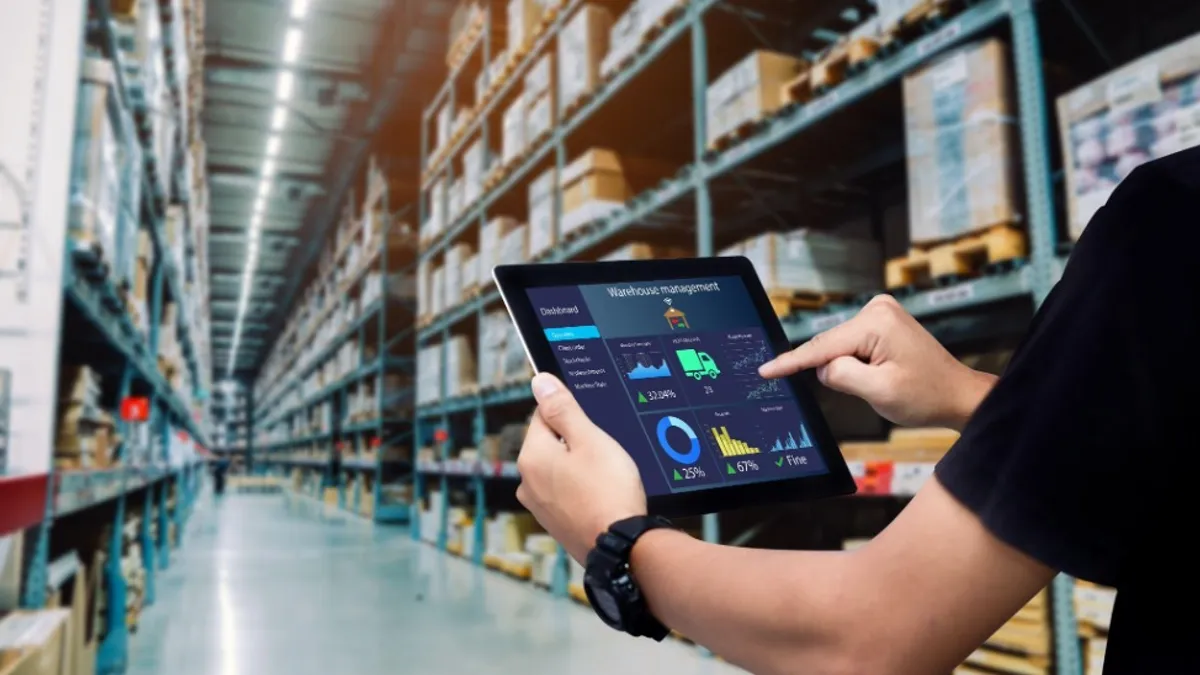Buying logistics hardware like handheld barcode scanners, warehouse tablets and in-cab tablets can be daunting. There are numerous things to think about, software notwithstanding. We’ll examine software considerations, break down why it’s so hard to get right and help you avoid common pitfalls when shopping for new devices.
Software compatibility, scalability and security
Finding the “perfect” device(s) is just the starting point — after that, it’s time to put it under the magnifying glass and pick it apart. There are several considerations at this point, which are equally important when considering your device strategy.
- Compatibility with existing systems: Your operation likely consists of a lot of moving parts, so software interoperability is always a concern. Suppose you’re currently using Windows-based systems but want to move to something more agile, like Android. In that case, you’ll have some important decisions to make — you either need to find solutions compatible with your existing software tools or replace those tools with something compatible with the new hardware. One may be more advantageous, but it’s always important to consider the future and your device strategy. A software change today to pave the way for a better, more scalable tomorrow is never the wrong choice.
- Scalability: This goes hand-in-hand with the last point, but knowing where you’re heading is just as important as knowing what you need right now. Finding hardware that won’t hold you back is paramount as you scale. Having a mixed fleet of device types and operating systems only adds complexity to an already complex device ecosystem (and sometimes it’s the only way), so deciding on a hardware strategy that works today and empowers you tomorrow will encourage growth and optimize sustainability.
- Support life: Software lifecycles are a crucial consideration if for no other reason than device security. Hackers work overtime to find every potential vulnerability in an operating system, then use those holes to their advantage. Regular security updates are your first defense against these exploits, so choose a solution with a proven software support track record.
When it comes to software security and support, the solution is where it starts, but it’s far from where it ends. You’ll also need to think about the device management tools.
Device management bundling, features and more
As you shop for new devices, you’ll notice a common trend: many logistics technology companies bundle their devices with device management. Unfortunately, there’s no one-size-fits-all solution for device management, especially where logistics devices are concerned. The supply chain requires a wide variety of devices, and if you have the wrong device management provider, you could cost yourself and your company a lot of time and money. Here are three key things to consider:
- Software delivery: Getting apps, app updates, security patches and software updates to edge devices is challenging. And surprisingly, it’s something that many MDMs don’t handle well. That’s why finding one that prioritizes software deployment as a focus and not an afterthought is essential.
- Remote tools: Provisioning takes time, but what if you could automate it? Or, even better, do it all remotely? Remote provisioning isn’t just a pipe dream — it’s the right way to provision devices. And remote tools don’t stop there, either. If you want to up your support game, look for complete remote control for troubleshooting and debugging.
- Advanced telemetry data: Knowing that your devices are working is only half the battle (maybe not even half, to be honest). You should know what they’re doing, how people use them and nearly all other details. Robust telemetry data doesn’t just let you know what’s happening right now, but it informs decisions as you scale.
While device management is much more complex than just that, it’s a good starting point! Just remember that most MDMs were designed for BYOD (Bring Your Own Device) and COPE (Corporate Owned, Personally Enabled) device scenarios — not more nuanced situations like managing an entire fleet of varying logistics hardware.
Software doesn’t have to be a challenge
If you find yourself stuck in a perpetual cycle of software incompatibility, security vulnerabilities and MDM issues, you’re not alone. Esper was born out of the need for better management of dedicated devices like barcode scanners, rugged tablets and much more. You don’t have to take our word for it, though — take this quick, 10-question assessment and decide for yourself.










